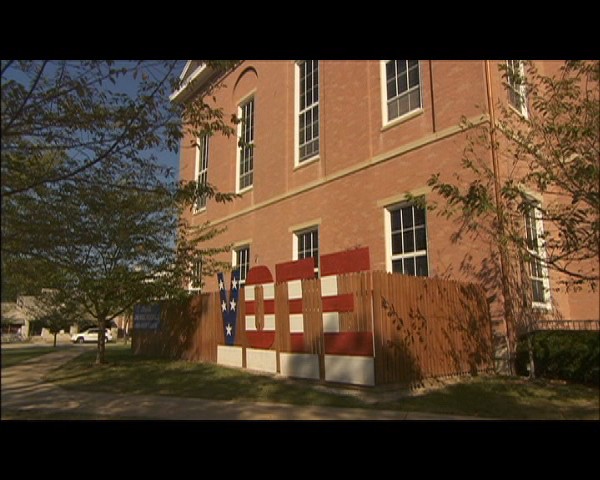I seldom write on films by personal friends. The conflict-of-interest issues are obvious, and the opportunity to ruin a friendship (and get punched in the nose) too numerous to count. The one time I will make an exception is when I can wholeheartedly and candidly recommend a film. Happily, such an opportunity presents itself today as
Electoral Dysfunction, a new documentary by David Deschamps, Leslie Farrell and Bennett Singer opens at
the Quad Cinema in lower Manhattan.
Unless you've been living somewhere near the earth's core, you know that one of the formidable side issues in this year's presidential campaign has been Republican efforts to pass and enforce laws that would require citizens to present photo IDs issued by governmental bodies in order to be allowed to vote. Given that even the supporters of such laws admit that up to now voter fraud of the sort these laws are supposed to target is really a non-event. The real purpose of such laws is to discourage voting by the elderly, the poor, African-American and Hispanic-American voters. But doesn't the U.S. Constitution guarantee the right to vote?
Not exactly. As
Electoral Dysfunction makes crystal clear (and very funny), what the Constitution does, through a series of amendments, is to prevent discrimination against voters due to race, previous condition of servitude, gender or age (above 18, that is). The rest is up for grabs and the result, compounded by the worst aspects of our atomized system of state laws, is a chaos of more than 50 different sets of laws. (I happen to live in New York, which has the most byzantine, abstruse and absurd election laws in America, laws that produce over 50% of the election-law-related suits in the country.
Ripley County Courthouse in Versailles, IN, Election Day 2008
Jumping off from the 2008 election as experienced in the frequently red state of Indiana (which Obama carried then), Deschamps, Farrell and Singer offer a witty and biting history and portrait of this chaos, aided immeasurably by the winning and occasionally caustic presence of Mo Rocca as tour guide. The tone of the film is admirably balanced. There are more than enough dysfunctions in this system for agreement across party lines. It's a rare political documentary that doesn't make me want to walk out of the theater and punch some villain in the nose. Believe me when I say that the fact that
Electoral Dysfunction didn't make me feel that way is high praise indeed. Equally important, the film offers some measured, concrete suggestions for improvement, which is more than many of our elected officials can muster.
*************************
It's been embarrassingly long since I posted to this space (shows you how much I like David and Bennett and Leslie that I re-emerged for their film). However, I have not been idle. Let me pull your coat to several items from Jewish Week that will be of interest to you.
- Matisyahu made his acting debut a few weeks ago in The Possession, a not uninteresting little horror number. I thought it was not without merit, but also not without much Jewish flavor.
- Older New Yorkers will probably have fond memories of Bob Fass's epic overnight shows on WBAI-FM from the '60s and '70s. Radio Unnameable is the name of both Fass's radio program and an entertaining new documentary about his career.
- When you go to the Quad to see Electoral Dysfunction, you might also consider Blinky and Me. Although far from flawless, this documentary about Polish-Israeli-Australian animated filmmaker Yoram Gross is one of the best ways I've seen to introduce the thorny subject of the Shoah to younger children.
- I had an interesting chat with Richard Pena, the outgoing director of the New York Film Festival in which he suggested that we may be seeing the end of movie theaters as we know them. Needless to say, I"m hoping he's wrong, but I suspect he's right. I'm sure I'll have a lot more to say about this year's Film Festival in the next three weeks.
- You might not think of Casablanca as a Jewish film, but as its 70th birthday approaches, historian Noah Isenberg will be making that case in a talk at the Center for Jewish History. I weighed in with my own two-cents plain in Jewish Week and since it's one film I'm sure everyone has seen, you may find my remarks of interest. (I will add, chastened, that as my good friend Bob Lamm pointed out to me, the actions of the Committee for the First Amendment proved to be of dubious value, and the majority of Hollywood's liberals didn't cover themselves with glory during the blacklist.)
- Finally, for a list of some of the more interesting fall film events with Jewish content, you can check my suggestions in the JWeek fall arts guide here.

